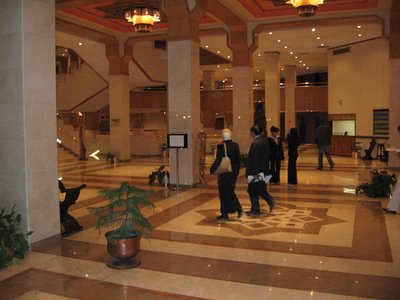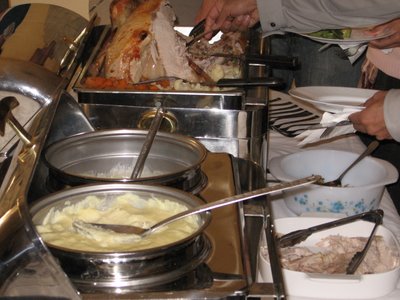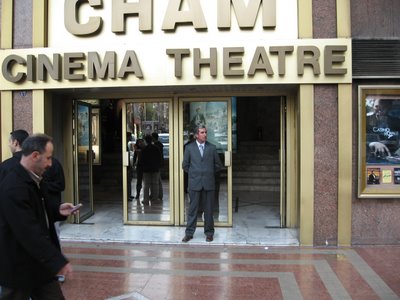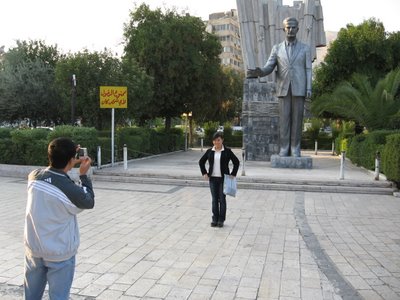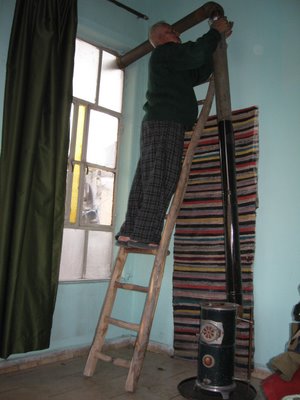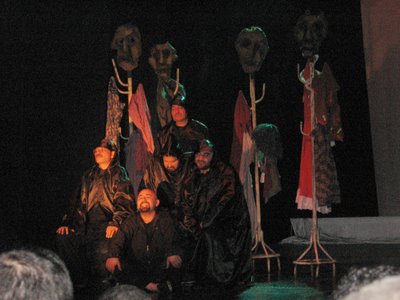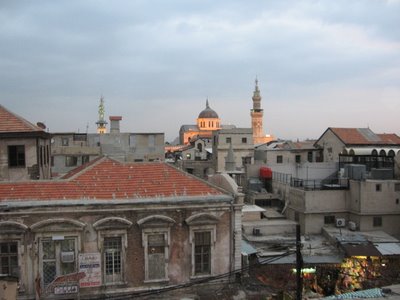If you would permit ...
 Public transportation in Damascus comes in the form of the bus and, most prevalent, the service taxi, servees in Arabic. Japanese-made vans packing in 12 passengers, sometimes more, run several dozen routes through the city, and to villages in the surrounding countryside. They stop at any point along the way to drop off and pick up, providing there is space. (In the early afternoon, when students and civil servants head home for lunch, it's hard to find one with an empty seat.) The cost for routes within the city: 10 cents a ride.
Public transportation in Damascus comes in the form of the bus and, most prevalent, the service taxi, servees in Arabic. Japanese-made vans packing in 12 passengers, sometimes more, run several dozen routes through the city, and to villages in the surrounding countryside. They stop at any point along the way to drop off and pick up, providing there is space. (In the early afternoon, when students and civil servants head home for lunch, it's hard to find one with an empty seat.) The cost for routes within the city: 10 cents a ride.In other parts of the Arab world, there is just one, or maybe two or three, ways to request that a driver stop his taxi. In Damascus, there are more than a dozen well-worn expressions, most exceedingly polite. Damascene Arabic is known for its flourishes of politesse, and there is no better place to observe them than in the service taxi.
I take service taxis most days, often several times a day. I’ve kept notes on some of the ways Damascenes request a driver to stop:
*Let us down on the right, if you wish.
*On the right, if you would permit.
*May God grant you health.
*On the right, ballah.
(Ballah roughly translates to, "for God's sake," or, "I implore you." It is a way of saying, "please," while invoking God's name.)
*Let us down on the right, for God's sake, if you please.
*At the corner, zakatak
(Zaka is the almsgiving required by Islam. To say zakatak to the driver means that to stop the taxi and allow me to disembark is a deed akin to giving charity to the poor.)
*At the intersection, if it is possible.
*At this place, if you order it.
*Slow down, mo’allem.
(Moallem means teacher, as well as someone who is a master at his trade.)
*May God grant you success.

